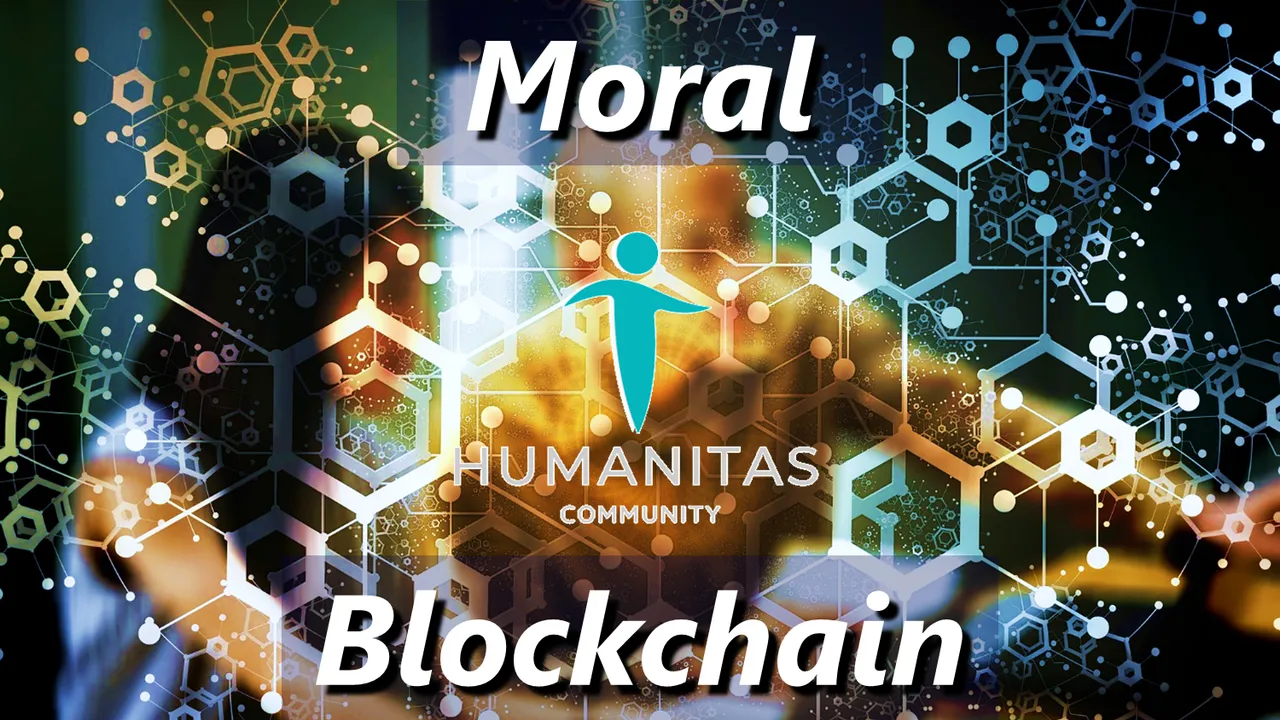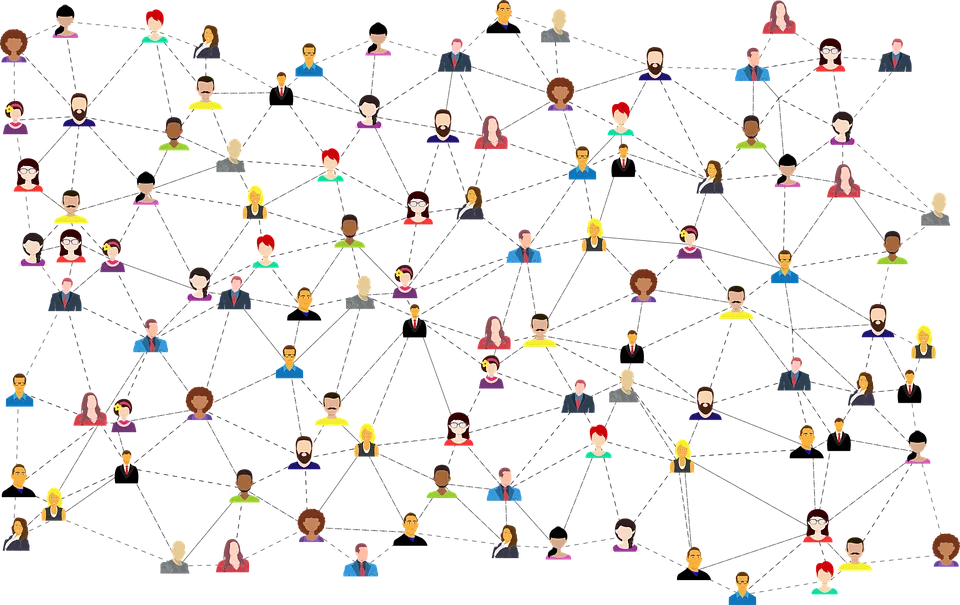Esta publicación en la comunidad Humanitas se basará en una idea que tuve en días recientes acerca de la moral como un sistema complejo y descentralizado. La moral podríamos verla como un sistema de creencias o reglas que una sociedad asume para regular de alguna forma su comportamiento. Y tiene mucho que ver con el tema de las humanidades, un área importante del estudio del comportamiento humano.
This publication in the Humanitas community will be based on an idea I had in recent days about morality as a complex and decentralized system. Morality could be seen as a system of beliefs or rules that a society assumes to somehow regulate its behavior. And it has a lot to do with the subject of humanities, an important area of the study of human behavior.

La moral podría verse como un sistema complejo, que no solo se encuentra en la mente de una persona sino que está en todas o casi todas la mentes de una sociedad. Es una especie de "mano invisible", pero no en lo económico sino en lo social.
Pienso que así como en una cadena de bloques, los mineros o testigos se encargan de que todo esté en orden, de que el código se mantenga inquebrantable, en un grupo de personas funciona algo similar.
Morality could be seen as a complex system, which is not only found in the mind of one person but in all or almost all the minds of a society. It is a kind of "invisible hand", but not in the economic but in the social.
I think that just as in a blockchain, the miners or witnesses make sure that everything is in order, that the code remains unbreakable, something similar works in a group of people.

Esto es algo que se puede ver claramente en las criptomonedas, lo podemos imaginar fácilmente con los diagramas de nodos interconectados que solemos ver frecuentemente. Pero cuando se trata de seres humanos, es un poco más complejo, ya que cada quien tiene una consciencia propia que tomará decisiones prácticamente inpredecibles, a diferencia de las criptomonedas, que solo harán una cosa: transferirse de un punto a otro y validarse o no.
La moral viene influenciada por nuestra cultura, e instituciones que buscan de alguna manera fomentar una buena moral, como la iglesia, la familia, la escuela, las leyes y justicia, etc. También pueden haber otras influencias morales en la sociedad, como las redes sociales o los "intelectuales" del momento, los cuales pueden influenciar positiva o negativamente en la cultura de la sociedad. Pero al final, somos nosotros los que funcionamos como "mineros" validando lo que es "bueno" o no en nuestras decisiones personales, y normalmente tratamos de adaptarnos a los que la sociedad considera bueno, porque lo contrario podría ser rechazado por el consenso común.
This is something that can be clearly seen in cryptocurrencies, we can easily imagine it with the diagrams of interconnected nodes that we often see. But when it comes to human beings, it is a bit more complex, since everyone has a consciousness of their own that will make virtually unpredictable decisions, unlike cryptocurrencies, which will only do one thing: transfer from one point to another and validate themselves or not.
Morality is influenced by our culture, and institutions that seek in some way to foster good morals, such as the church, the family, the school, the law and justice, etc. There may also be other moral influences in society, such as social networks or the "intellectuals" of the moment, which may positively or negatively influence the culture of society. But in the end, we are the ones who function as "miners" validating what is "good" or not in our personal decisions, and we usually try to adapt to what society considers good, because the opposite could be rejected by the common consensus.

Pero ¿Y si el consenso común está equivocado? a veces lo que la mayoría considera bueno podría al final terminando siendo malo para todos y llevarlos a una situación peor. En el caso de las criptomonedas la decisión es fácil: las transacciones duplicadas o transacciones falsificadas no serán validadas por la cadena de bloques. En cambio, en la acción humana es mucho más complejo decidir qué hacer y qué no hacer, hay infinitas decisiones posibles.
But what if the common consensus is wrong? Sometimes what the majority considers good could end up being bad for everyone and lead to a worse situation. In the case of cryptocurrencies the decision is easy: duplicate transactions or counterfeit transactions will not be validated by the blockchain. In contrast, in human action it is much more complex to decide what to do and what not to do, there are infinite possible decisions.

La moral podía verse como el "sistema de comportamiento" de un individuo y de una sociedad, pero este "sistema" no necesariamente puede ser el más eficiente en esa sociedad, no necesariamente llevará a ese individuo o esa sociedad hacia una situación mejor. Hay muchas cosas relativas al contexto del individuo y al contexto de la sociedad, pero podría decirse que hay principios fundamentales o universales que podrían ser guía para cualquier ser humano.
Podría decirse que mientras más cerca esté nuestro "sistema moral" de estos principios fundamentales, que nos hacen humanos y además nos "acercan a Dios" desde un punto de vista más espiritual, mejor funcionamos como sociedad. Cada uno de nosotros funcionaríamos como "validadores" del sistema moral en nuestro entorno.
Morality could be seen as the "system of behavior" of an individual and of a society, but this "system" may not necessarily be the most efficient in that society, it may not necessarily lead that individual or that society to a better situation. There are many things relative to the context of the individual and the context of the society, but it could be said that there are fundamental or universal principles that could be a guide for any human being.
Arguably, the closer our "moral system" is to these fundamental principles, which make us human and also "bring us closer to God" from a more spiritual point of view, the better we function as a society. Each of us would function as "validators" of the moral system in our environment.

Creo que la moral funciona como una manera de buscar preservar la esencia humana en la sociedad, por ello es importante desde el punto de vista humano. Y la cadena de bloques sería una analogía interesante, donde cada humano no solo es parte sino que está interconectado con otros, con el objetivo de crear una buena cultura y moral.
¿Cuál es tu opinión? Deja tu comentario si quieres generar debate o dejar tu punto de vista al respecto.
I think morality works as a way to seek to preserve the human essence in society, so it is important from a human point of view. And blockchain would be an interesting analogy, where every human is not only part of but interconnected with others, with the goal of creating a good culture and morals.
What is your opinion? Leave your comment if you want to generate debate or leave your point of view about it.
Translated to English language with the help of DeepL.com
| ¡Gracias por visitar! — ¡Thanks for visiting!  |